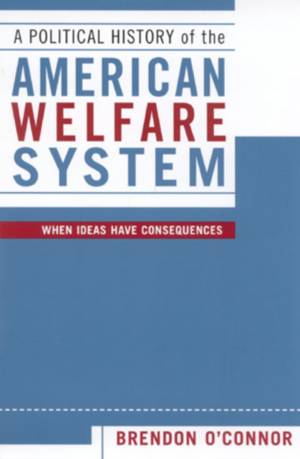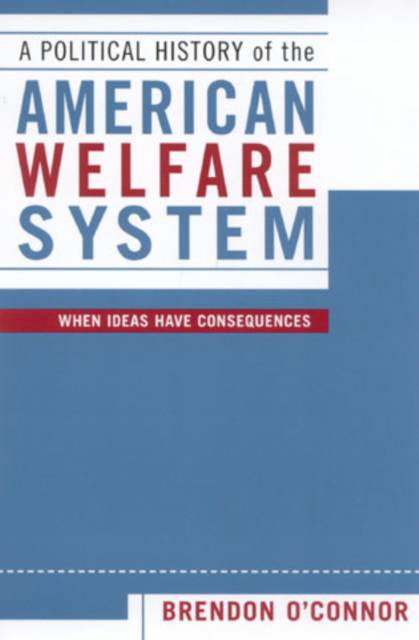
- Retrait gratuit dans votre magasin Club
- 7.000.000 titres dans notre catalogue
- Payer en toute sécurité
- Toujours un magasin près de chez vous
- Retrait gratuit dans votre magasin Club
- 7.000.0000 titres dans notre catalogue
- Payer en toute sécurité
- Toujours un magasin près de chez vous
A Political History of the American Welfare System
When Ideas Have Consequences
Brendon O'Connor
Livre relié | Anglais
142,95 €
+ 285 points
Format
Description
How did American welfare policy move from the ambitious and altruistic goals of LBJ's Great Society of the 1960s to the punitive and penurious provisions of the Personal Responsibility and Work Reconciliation Act of 1996? This book explores the power of ideology and rhetoric in the transformation of the American liberal welfare state. Based on historical analysis, detailed public policy critique, and original interview data, the story that unfolds is one of both personality and politics. Author Brendon O'Connor places the American welfare policy debate in wider perspective, showing how America's particular use of ideas and conceptions of economics and politics worked to reshape the national perception of poverty, morality, and economic responsibility over time. Through wide reading, close textual analysis, and dozens of talks with liberal and conservative figures including Peter Edelman, David Ellwood, Ron Haskins, and Representatives E. Clay Shaw, Jr., Jim McCrery, and Sandy Levin, O'Connor dramatically demonstrates the shift in American welfare policy from left to right. This acute outside perspective enables us to see clearly just how we have arrived at the current post-liberal welfare era in the United States.
Spécifications
Parties prenantes
- Auteur(s) :
- Editeur:
Contenu
- Nombre de pages :
- 304
- Langue:
- Anglais
Caractéristiques
- EAN:
- 9780742526679
- Date de parution :
- 01-10-03
- Format:
- Livre relié
- Format numérique:
- Genaaid
- Dimensions :
- 156 mm x 240 mm
- Poids :
- 498 g

Les avis
Nous publions uniquement les avis qui respectent les conditions requises. Consultez nos conditions pour les avis.






